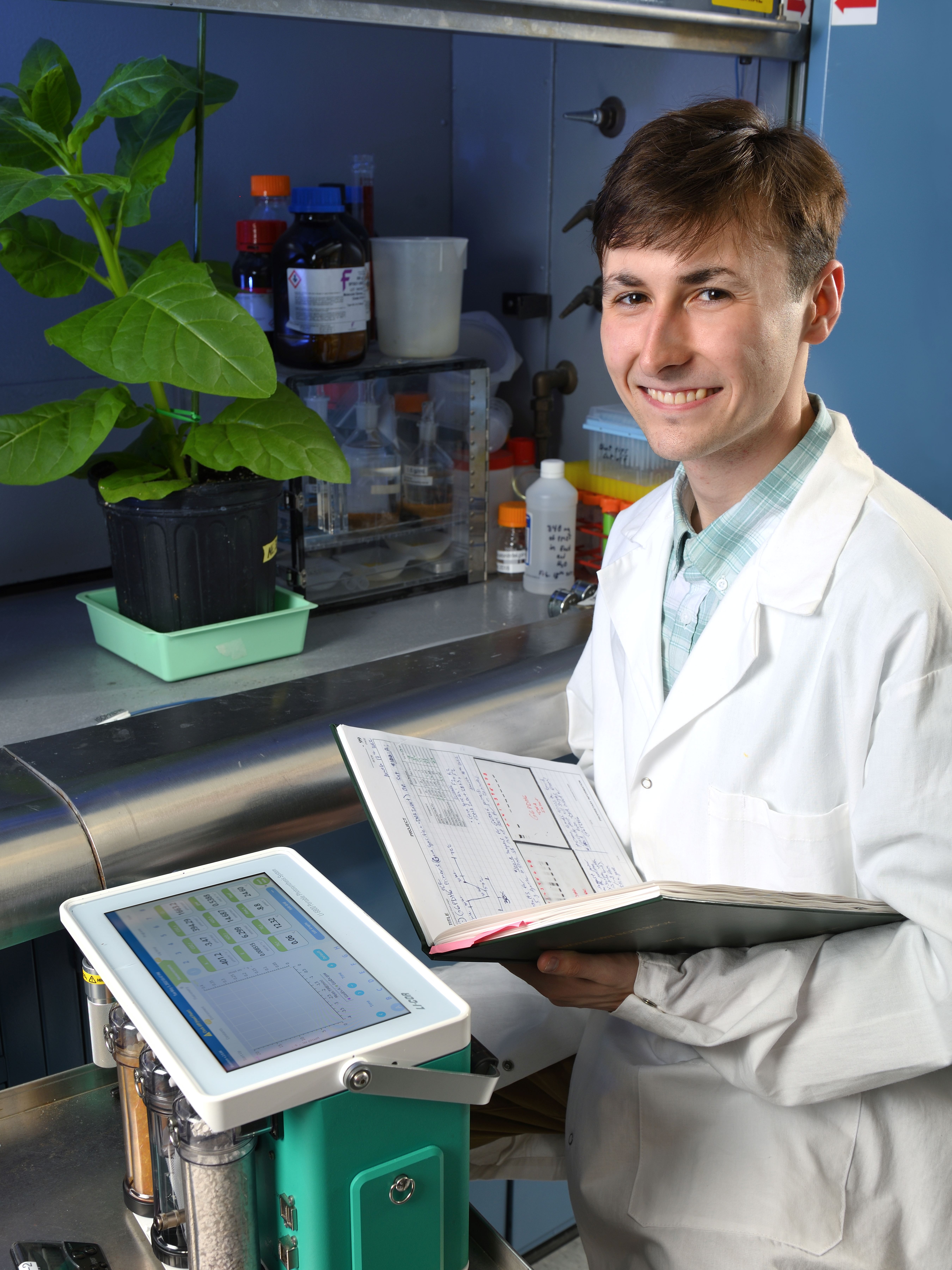Caleb Fisher is a senior majoring in biochemistry and molecular biology from Laingsburg, Michigan, and a College of Natural Science Dean’s Research Scholar.
When I began my degree at Michigan State University, I took pride in being the first person in my family to pursue higher education and was eager to explore every opportunity that I could. I had an interest in research but didn’t fully understand what it looked like professionally.
My enlightening experience came when I joined Professor Robin Buell’s group in plant biology in the first semester of my freshman year, where I optimized protoplast isolation protocols for droplet-based single cell RNA-sequencing. With no prior exposure to research, my mentors helped me adjust to the lab environment and become technically skilled. However, the COVID-19 pandemic disrupted every aspect of life in March 2020, with research as no exception.
In June 2020, I returned in-person to the Buell lab, where I used assays to measure the leaf movement rhythms of dihaploid Solanum tuberosum (potato) populations. The genomic characterization of potato circadian rhythms — one of the most economically important crops globally — was significant. Coordinating with other groups in the department, we developed a phenotypic dataset for genomic analysis consisting of more than 100 different lines of potato. This milestone also marked the Buell lab’s transition to the University of Georgia (Athens), which gave me an opportunity to shift gears and explore my interest in biochemistry research.
After an introduction to their ongoing projects, I joined Professor Thomas Sharkey’s group studying the role of glucose-6-phophate dehydrogenase (G6PDH) in the heat stress response of Arabidopsis thaliana. Using my prior skillset, I performed enzyme assays, which revealed a significant role for G6PDH in plant stress response. Measuring activities for the suite of antioxidant enzymes sparked my curiosity about how the structure of enzymes could be experimentally related to their chemical activity. I was ecstatic when I had the opportunity to further explore this question and continue developing as a scientist at the Donald Danforth Plant Science Center’s National Science Foundation Research Experience for Undergraduates program.
During my time at the Danforth Center, I worked in Principal Investigator Sona Pandey’s lab studying the role of post-translational modifications in G-proteins and their role in controlling the specificity of response regulation using the A. thaliana G-protein subunit, Gα (AtGPA1) as a model. We explored this by measuring the hydrolytic activity of phosphomimic and oxidative variants in vitro. With the help of my mentor, Maria Daniela Torres Rodríguez, I quickly learned numerous molecular biology techniques, which I used to engineer new genetic variants of the protein. Eager to get an answer to the original question, I proceeded to purify and assay the reengineered proteins in the last weeks of my internship, which revealed changes in GTP binding and hydrolysis with pseudo-PTMs.
During my time at Michigan State University, the Dean’s Research Scholars program has been instrumental to my development as a scientist and as an individual. Communicating one’s research to the public is the most important, but difficult, service a scientist must fulfill. However, the program has allowed me to develop this skillset and tell the world about my research, both now and in the future.
This story was originally published on the College of Natural Science website.
